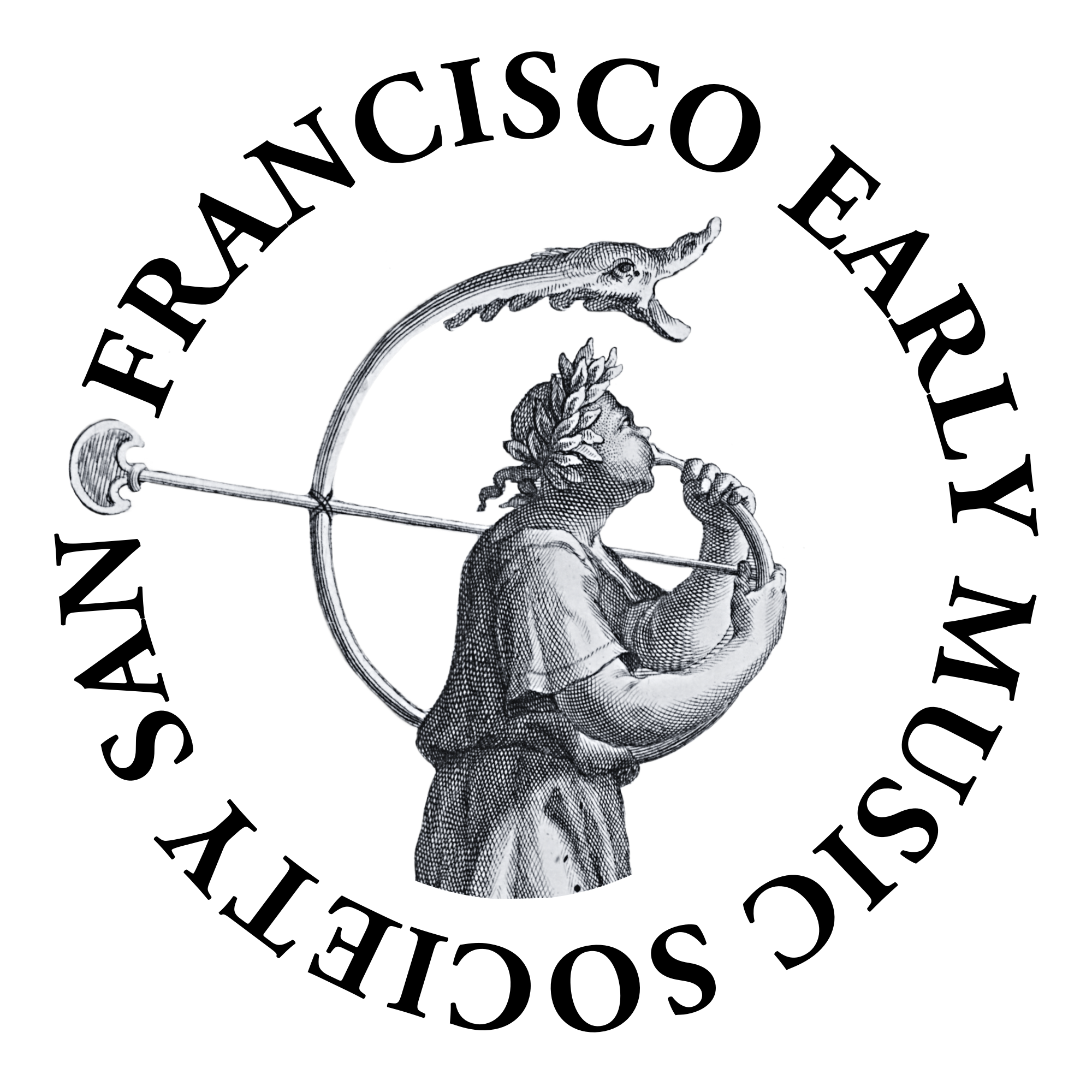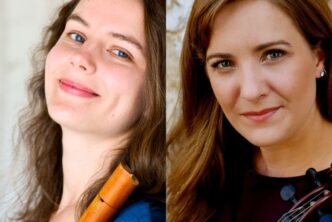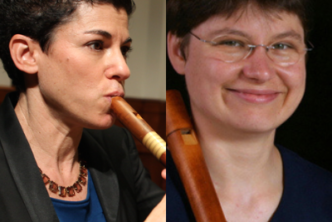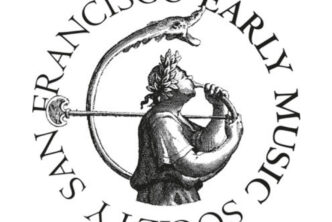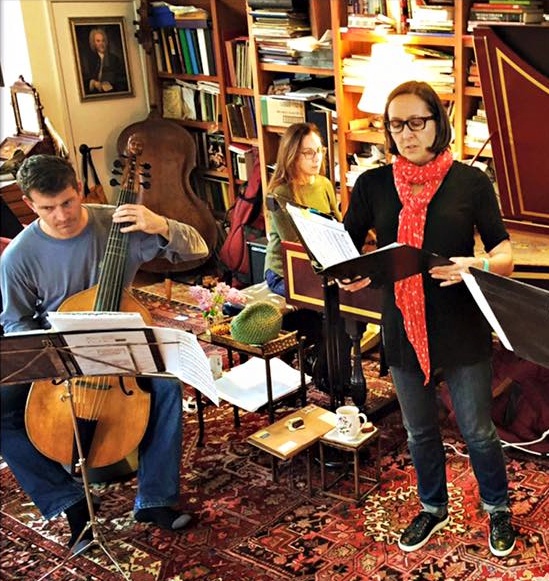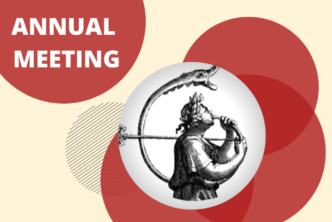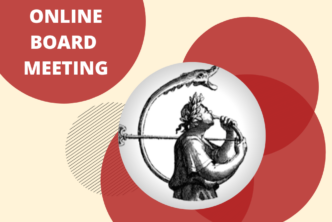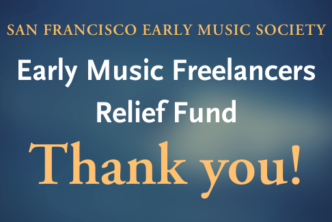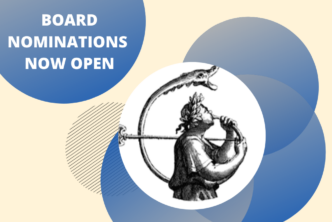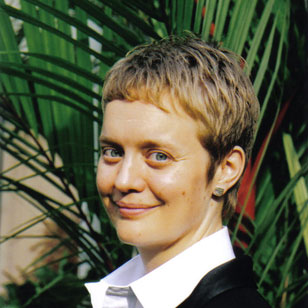Randy Matamoros reflects on 25 years with SFEMS
As the year 2016 nears its end, we are looking back at the experiences of our members, past and present, who have participated in and helped to build SFEMS and the Bay Area’s early music community. Randy Matamoros has been with us for many years as a member, supporter, workshop attendee and concert goer. SFEMS’ Jessica House Steward spoke with him last month.
Jessica House Steward: When did you first fall in love with early music, and do you remember what piece it was, or the composer? What were your first impressions?
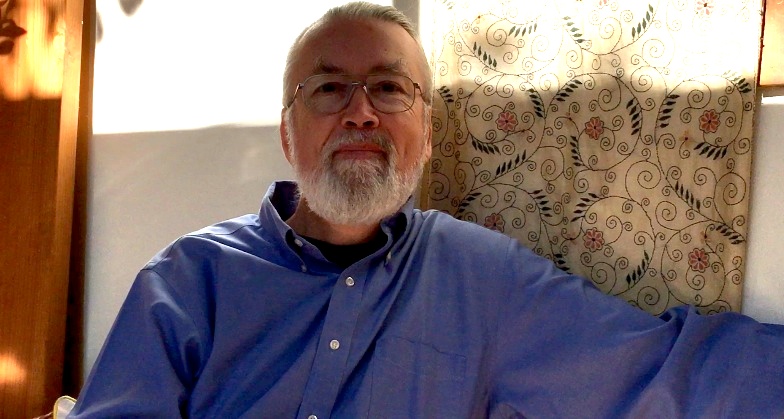
Randy Matamoros: It was late 80s or early 90s. I started as a singer with Elizabethan madrigals, then similar music from the Continent. But it was sacred Renaissance polyphony that really hooked me—Josquin to Victoria. The latter’s O magnum mysterium is a piece that I ran across early on, and it’s as close to perfection as music gets. I was introduced to medieval music by Ensemble Alcatraz’s live performances in their very early days (no pun intended). Having been involved in jazz as a keyboardist, my immediate thought was “they’re playing jazz!” The small ensemble setting, degree of interplay and improvisation were all immediately familiar to me, just within a different harmonic environment. It was magical, and it opened my ears to a world of music that I didn’t know existed.
JHS: In what ways, and how long have you been involved with SFEMS?
RM: In most ways, and for a long time. I’ve been a member for more than 25 years and at least a small-time donor most of that time; I’m a concert series subscriber and (many years ago) helped choose groups for the series; I also attended the summer workshops 4 or 5 times (also many years ago); and I’ve also attended many Affiliate concerts over the years and even occasionally been an Affiliate participant (at the Singers’ Retreat); and I’ve attended every Berkeley Festival since the beginning and now help sponsor concerts.
JHS: Can you share a favorite memory from your SFEMS experiences?
RM: It’s tough to choose just one. I think some of my favorite times at SFEMS events were at the workshops I attended. It’s a really great environment with great people; both instructors and fellow students. In the early 90s, it was a real heyday for medieval music and we had a workshop dedicated to medieval music, with Benjamin Bagby and members of Ensemble Alcatraz. Studying with Shira [Kammen] and all those members was fantastic. One year, harpist John Fleagle was there, and I happened to be in the concert hall when he was rehearsing for a program. He began singing and playing, and the sound seemed to come out of his body and fill the hall. That was 25 years ago, and it sticks with me.
JHS: Tell us why SFEMS is so important to you.
RM: I think the importance of SFEMS is as an advocacy group and a support group for early music, especially in the Bay Area, but also beyond. There are only so many opportunities to hear professional early music performances and professional early music musicians, and for those of us who love the music, of course we want to hear the performances. But for those of us involved in making the music, we also want to be inspired by people doing this on a professional level, so what SFEMS does is provide support and opportunities to hear the music; there’s a concert season and the [Berkeley] Festival and the support for the Affiliates is great because that supports those of us who are also making music, whether it’s on stages or in our living rooms. So really SFEMS is providing the focal point for early music listening and playing in the Bay Area. Early music is its own little world within the larger music universe. Its popularity has waxed and waned over the years, and it has influenced the larger universe quite a bit. But we still need organizations devoted specifically to early music; otherwise the opportunities to hear and play it would be quite limited. SFEMS fulfills that role locally.
JHS: Do you have any ideas for how to develop a younger or broader audience for early music?
RM: We have quite a bit of work to do on marketing and outreach. The SF Bay Area entertainment market is crowded, with a wealth of options in culture, sports, outdoor activities, etc. It can be very hard to be noticed. I think our first priority needs to be “butts in the seats” (pardon the expression) for concerts and all other activities. Succeed at that, and the revenue will follow. But I do recognize that there has to be a balance between pricing to your value (you can’t just give everything away) and pricing to lure more audience and members. These are tough decisions.
JHS: Why do you think it’s important to support SFEMS?
RM: I think for any of us who are interested in medieval, Renaissance or baroque music—any of the early stuff that we don’t hear as often—it’s important that SFEMS be out there doing the advocacy, providing the support and so on; therefore it’s important for each of us to support SFEMS, and how we do that is going to vary according to who we are, what our resources are and so on. Some people may be able to contribute and donate in addition to their membership dues and support specific programs or just provide general support by going to the concert series, others will volunteer their time to help out at workshops and so on. There are lots of ways to support SFEMS. I think it’s just important that each of us do whatever we can.
JHS: Is there anything else you’d like to share with our SFEMS community?
RM: As a group, we can be parochial and overly tribal. Harvey [Malloy] and Robert [Cole] are trying to bring us all together and emphasize that success in each area (concert series, Festival, workshops and Affiliates) promotes success in all areas. But we still have members who focus on only their favorite aspect and/or are stuck in “us vs. them” thinking: workshops vs. concert series, musicians vs. donors, etc. If we want our organization and early music in the Bay Area to thrive, we need to embrace the larger vision. I’m grateful for all the people who put in the time, energy and money and everything else to keep SFEMS a vital part of our cultural scene in the Bay Area. I’ve certainly benefited from it by attending the concerts and the workshops, and I hope that it continues for a good, long time. Where I can give back, I’m happy to do that and I think, if all of us can do that then we’ll have a successful organization.
* * *
Share Your Story! SFEMS is hundreds of people like Randy, and like you and me, who have come by various paths to the love of early music. Some of you have been with us since the beginning, others have discovered this community only recently. Whether it was through attending our season concerts or the Berkeley Festival, learning about and making music yourself at one of our summer workshops, or helping build the Bay Area’s vibrant early music scene as part of a SFEMS Affiliate group, your participation and your dedication to cherishing and enacting these treasures from our musical heritage are what sustains our mission. Your stories and experiences, your insights and epiphanies, are important to us, because they illuminate our path forward. Please tell us how you came to early music and what early music and SFEMS have meant to you. All those who take our survey will be eligible to win a pair of free tickets to our fabulous, February concerts featuring ARTEK performing Monteverdi’s seventh book of madrigals.

